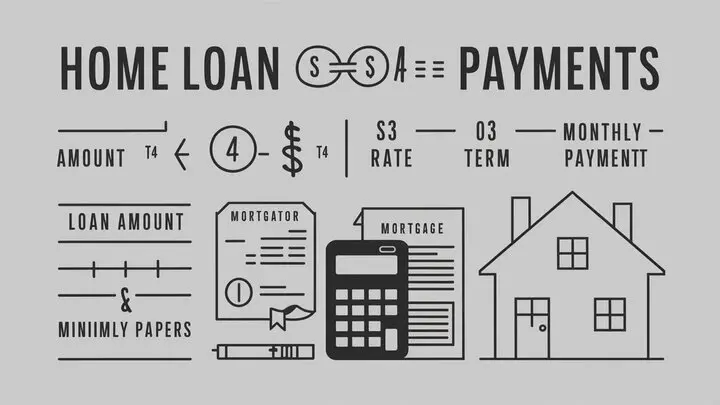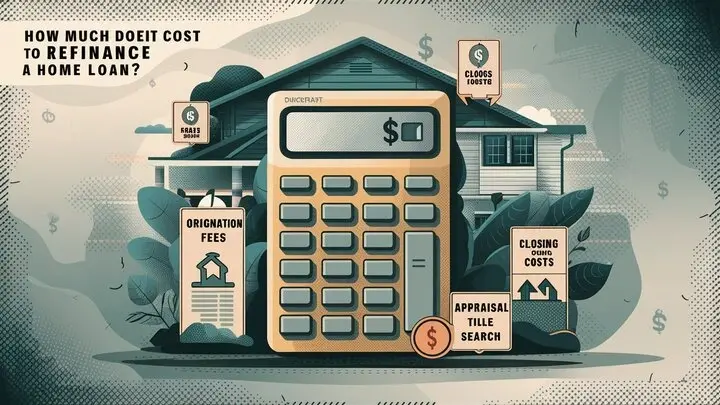-
Posted on: 23 Aug 2024

-
A home equity loan enables the homeowner to tap into the cash trapped in his home through borrowing against the property. Since the interest rates are still relatively low, there is no better time than now to consider borrowing against your home’s equity. Below is a guide on how to get a home equity loan:
How Much Equity You Have in Your Home
The first calculation is ascertaining how much of the equity on your house you can access for a home equity loan. Home equity is the current fair market value of the home minus any balance outstanding on the loan. For instance, if your home is currently worth $300, 000, and your mortgage balance is $180, 000, your home equity will be $120, 000. This is the maximum that one may be able to pledge with a home equity loan. Nonetheless, the loan amounts are often capped at 80-85 percent of your total equity.
Check Your Credit Score
Like any credit, the credit score and history of the applicant an important factors to be considered by the lenders when approving the home equity loan and the interest rate to be charged. Mortgage rates and fees are usually lower depending on the score of the credit you have in your credit profile. Go through credit reports from the three major credit bureaus. Ensure that all the details are correct and spend time enhancing your credit score if necessary before applying for a loan. For the best rates, try to get a score above 740.
HELOC or Home Equity Loan: Which Is Right for You?
There are two main types of home equity financing :
Home Equity Line of Credit (HELOC): This works like a credit card where you can spend up to the approved amount of credit that you have been given. The interest rates of HELOC are often adjustable.
Home Equity Loan: This means that it gives you the total of the loan amount without having to pay it back in installments. Most of the home equity loans come with fixed interest rates.
While HELOCs may be more fitting if your borrowing requirements are not static, home equity loans have more structure than their counterparts. Another thing that should be considered is which option is most suitable when it comes to your plans for using the money.
Research Home Equity Loan Provider Choices
It is advisable to compare the rates from various lenders to get the best rate for the home equity loan. The best fixed rates that should be sought are those below 5 percent while the best variable HELOC rates should be below 4 percent at the time of writing this. It is also important to compare fees and terms together with the rates. Large national lenders, local banks credit unions, and online lending companies are some of the choices. Before applying, it is better to get rate quotes from several lenders. It is also necessary to compare the interest rates, fees, requirements, services, and estimations of every lender you are considering before moving forward.
Calculate Your Loan Affordability
Think over the monthly payment that you are ready to make in terms of your financial capacity and other loans before requesting a specific sum of money. Affordability estimates can be found using online mortgage calculators. It is also important to consider future rate hikes when determining what is feasible for a HELOC. Check on the stability of your job and savings and don’t borrow more than what is reasonable if at all possible. An experienced loan officer can also assist in determining the ideal loan amount you should take.
Gather Necessary Documentation This will include your income confirmation, tax returns, bank statements, proof of assets, your mortgage statement, and other financial information. It will also help to have these documents ready when applying so that the processing time is as fast as possible. What actual documents each lender might need may slightly differ. Question what information should be collected in preparation for the appointment.
Applying formally for a loan is also another important step.
Formal documents for your home equity loan depends on your desired paperwork, and once you have picked your lender, you can proceed with the application process. This can mostly be done via the internet or by physically visiting the branch. You should be ready to part with an application fee which is usually between $75 and several hundred. There will also be multiple hard credit check inquiries during this process.
Await Your Lender’s Decision
Approval time takes on average two days to two weeks depending on the lender. Sufficiency of the property’s appraised value and meeting of minimum requirement on income and credit scores are approval criteria. It might be revised based on any additional data acquired throughout the underwriting process.
Read Your Loan Contract and Put Your Signature On It
Some of the things that you need to consider while going through your loan agreement include the interest rates, any fees charged, the costs of closing the loan, and; the aggregate interest charges on your loan. This involves questioning and bargaining to make any positive changes, especially regarding the terms of the contract. Other third-party platforms like MagnifyMoney can assist in calculating loan costs and estimating them across different lenders. Also, be informed of what is reasonable concerning closing fees and points to pay.
Close on Your Loan
The loan funds are generally disbursed within five business days to two or fewer weeks, through direct deposit to the account you specify or by issuing checks at the closing. You will then be required to make monthly payments that include both the principal amount and the interest charges as agreed. Some of these lenders also require the payment of a yearly home equity account maintenance fee as well.
As you can now understand, it is easy to get financing if you do research and prepare well to use the built-up home equity. However, ensure that you take time to evaluate your borrowing requirements and your capacity to make repayments before applying. Approach your home as the valuable property that it is.
Don't let bad credit hold you back—contact us at (888) 803-7889 now!










